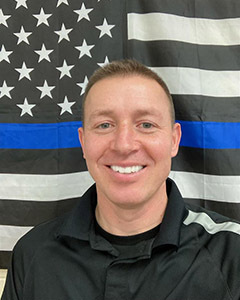PUBLIC SAFETY
Public Safety students will gain exposure to careers like: Police Officer, Firefighter, Dispatcher, Corrections Officer, Detective, Crime Scene Investigator, Court Bailiff, Lawyer, and Security Guard, and learn about many of the special assignments and opportunities in each. Students will gain skills and certifications to prepare them for these careers. All classes include a mixture of hands-on and classroom learning components. The program consists of two distinct course offerings, Introduction to Criminal Justice and Firefighting 1 & 2.
Criminal Justice gives students the opportunity to explore the basic concepts and potential careers in the criminal justice field. Students will learn about the three basic components of the criminal justice system: Police, Courts, and Corrections, and have the opportunity to earn their National Law Enforcement Certification and be certified in First Aid/CPR. Students will also learn basic police functions and the basics of crime scene investigation. Hands-on activities include: firearm safety/manipulation, handcuffing, traffic stops, defensive tactics, room clearing, radio use, and ticket writing. There will be multiple field trips and guest speakers to help students determine if a career in Public Safety is right for them.
In Fire Academy students will be participating in a State of Michigan approved course to earn their FF 1&2/Hazmat certification. The program allows students to gain experience and demonstrate proficiency in basic firefighting and rescue techniques and it provides the credentials necessary to become employed with local fire departments. After earning this certification students can work for any fire department in the State of Michigan. This course will be academically and physically rigorous as it is designed to prepare students to pass the state exam. The state requires that students attend at least 90 percent of the classroom time and 100 percent of the practical skills time presented in the course. This class is set up in a para-military fashion where physical fitness, discipline and decorum are highly valued.
Students are expected to report, in uniform, at the beginning of each class period by standing at attention for roll call, presenting personal gear for inspection, and showing evidence of the completion of all assignments.
(Criminal Justice is held at the GI-TEC Alma Campus).

Lab hours consist of:
- Handgun safety
- Proper gun belt position and use
- Dominant eye testing
- How to draw a handgun
- The proper use of a flashlight
- The proper use of a handgun
- Handcuffing (standing and prone suspect)
- Defensive Tactics (kicking, punching, escort holds, takedowns, pressure points)
- Patrol rifle use
- Latent finger print lifting
- Cast mold impressions
- Crime scene photographing
- Crime scene measurement
- Crime scene sketching (rough draft and to scale final draft)
- Tool mark impression casting
- Active Violence Incident (Active Shooter) Response training
- Patrol vehicle use
- Traffic stops
- Felony stops
- Patrol Rifle use in patrol car
- Emergency equipment use (Lights & Siren)
- Radio communications (phonetic alphabet memorization and use)
- Report writing
- Presentations & speeches
- Physical Training (P.T.) Pushups, sit-ups, running, cardio
- Call response (scenario's applying officer safety, interviews, laws and arrest)
- Mock trials






